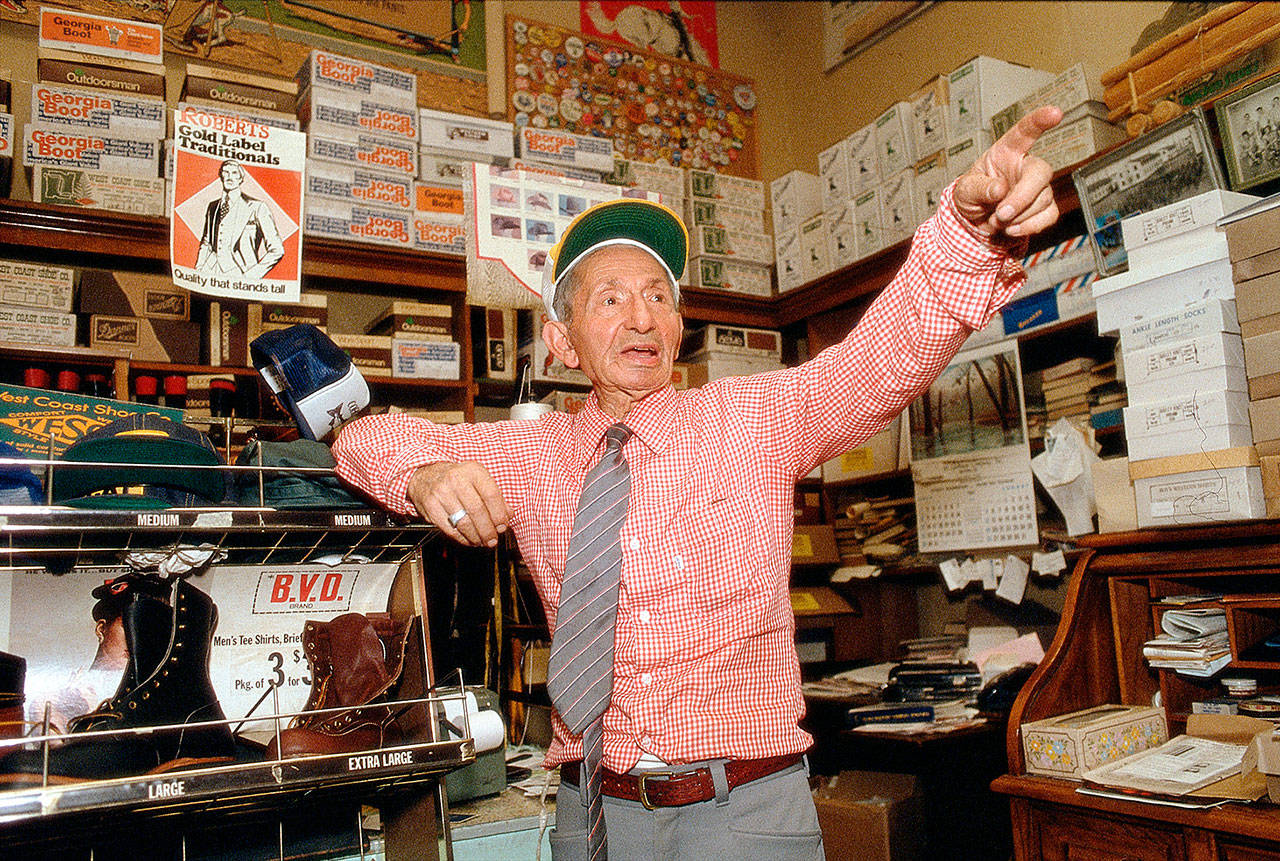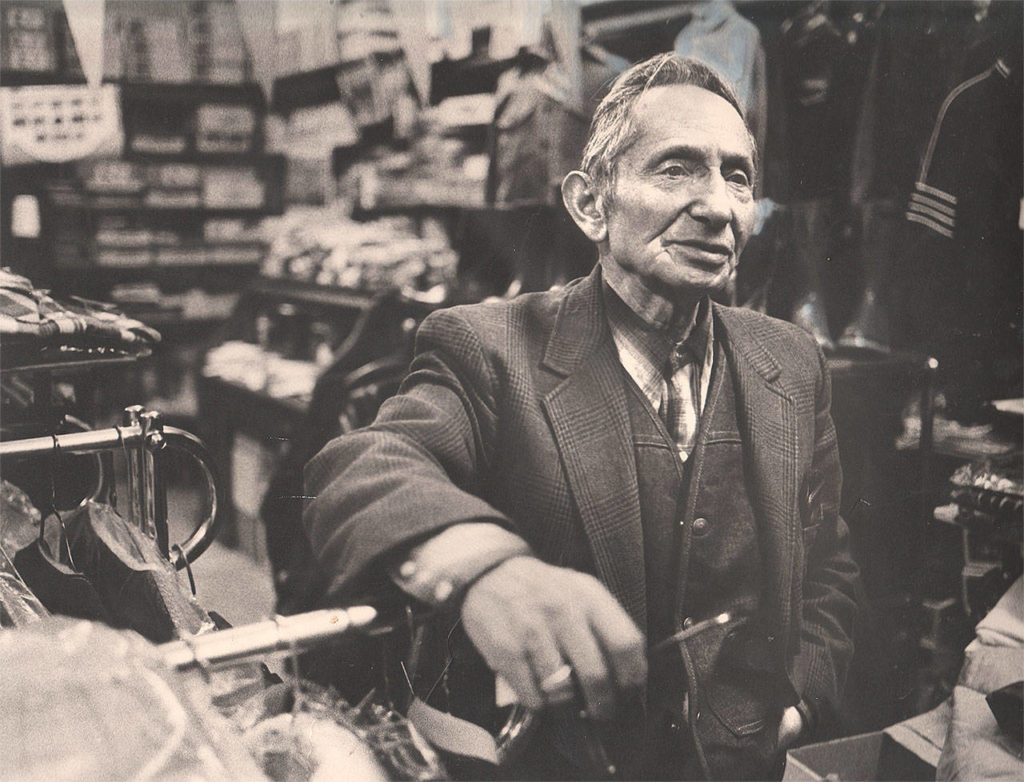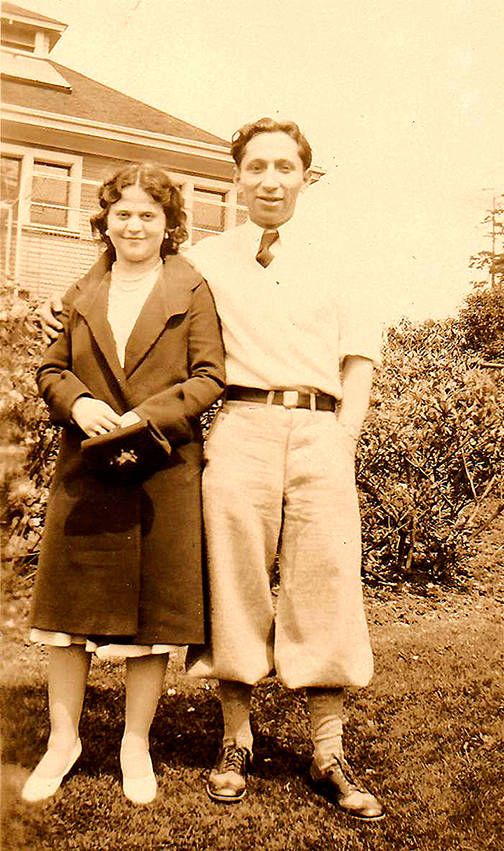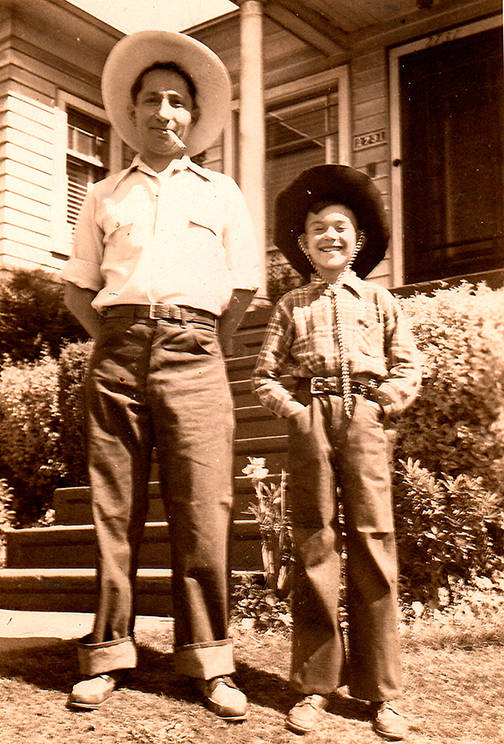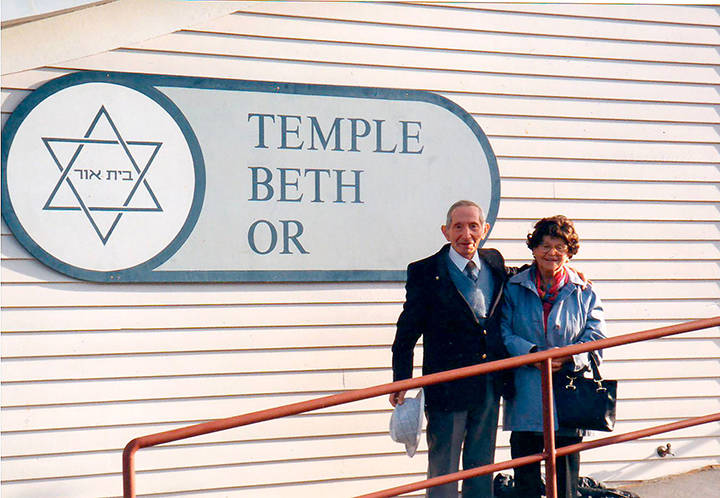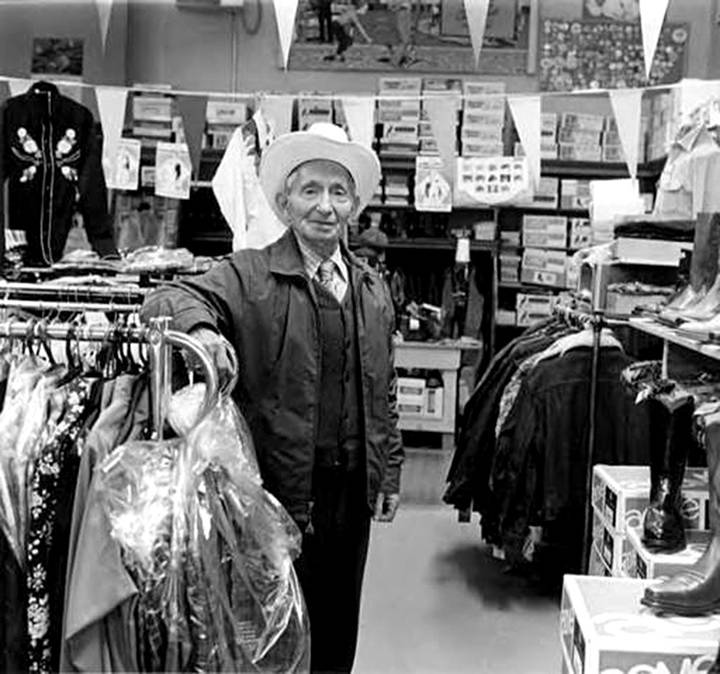The sepia-toned photo was taken in 1942. Father and son stand side-by-side, all smiles, in the front yard of their Everett home. The boy, 8-year-old Mel Sturman, is dressed as a cowboy.
“In those days, a man used to go around with a pony and would knock on people’s doors and say, ‘Do you want to have a picture of your kids on a pony?’ and most people would say yes,” said Mel Sturman, explaining the photo.
But cowboy garb was nothing unusual for young Mel. His father, Billy Sturman, owned a Western wear store in Everett.
The life of Billy Sturman (1908-2002), an Everett icon for generations, is a new featured exhibit at the online Washington Jewish Museum. That photo of father and son is one of many included in the exhibit.
Sturman ran Billy’s Men’s and Boy’s Western Wear store on Hewitt Avenue for nearly 70 years. He was also instrumental in establishing Temple Beth Or in Everett, Snohomish County’s Jewish synagogue.
“He’s definitely an important part of Jewish history in Everett,” Mel Sturman, 85, told The Daily Herald. “On the one side he helped start the synagogue, on the other side he was in business for 60 some years. He was well known to probably anyone who walked the streets and lived here in Everett.”
Billy was born in Slawatycze, Poland, then an Orthodox Jewish town. His family immigrated to Newark, New Jersey, when Billy was just 2 years old. But his mother, weary of poverty, soon returned to Poland with her three children. His father stayed in the U.S., eventually moving to Everett around 1916 to start a shoe repair shop.
In 1924, the family was reunited in Everett, thanks to Billy’s older brother, Sam. A thrifty saver, he lent their father the $2,000 required to immigrate from Poland to Everett.
Once the family was reunited in Everett, they bought a house on Rockefeller Avenue. The 16-year-old Billy preferred working in his father’s shop — the Everett Shoe Hospital on Hewitt Avenue — to book learning in school. He quit school after the eighth grade.
As a teen, Billy joined the Everett YMCA where he was a member for 14 years. There, Billy was teased because he was a recent immigrant and the only Jewish member. Kids called him names.
“I wouldn’t stand for that, so I started slapping some of them kids around,” Billy Struman said in a 1985 interview with the Washington State Jewish Historical Society. “I knocked one kid; blood right out of his nose, and I told him, ‘Don’t you ever call me any names.’”
Billy’s Menswear
In 1928, Billy opened his own store, Billy’s Menswear. But then the Depression hit. Only two stores on the block, including his own, managed to stay open.
“The people that I treated good never forgot it,” Billy said in 1985. “They’re what kept me 50 years in business.”
Soon after starting the business, Billy met his soon-to-be wife, Mary Mann, a friend of his sister. They married in 1932. Two children, Melvin “Mel” and Sandra, followed.
In 1935, Billy heard that a rodeo was coming to Snohomish County. No one in Everett dressed like cowboys, but Billy took a chance and stocked up on Western gear. It probably helped that the rodeo’s promoter promised to buy back any unsold clothes. Within a week of the rodeo opening, Billy had sold out his entire stock.
Billy never turned back. He renamed the store Billy’s Men’s and Boy’s Western Wear. He ran that store on Hewitt Avenue for 68 years.
“To serve the people, to let them have shoes on their feet, let them have jackets on their backs, that makes me happy,” Billy told The Daily Herald in 1980. “The people, they’re my friends, I can’t let them down. You understand?”
But on May 21, 1996, Billy’s faith in people was brutally violated. The 87-year-old was found at 4:30 p.m. crawling near the front of his store. He had been badly beaten in a robbery. Billy was taken to a hospital and remained in critical condition for several days. He never went back to selling clothes in his shop.
Temple Beth Or
When Billy moved to Everett in 1924, there was already a Jewish congregation called Montefiore. It was comprised of some 70 Orothodox families, most of whom were recent immigrants. Montefiore peaked in membership in the 1920s and ’30s, but then many members left for Seattle or simply passed away. Sixty years after Billy joined the congregation, the temple had fallen into disrepair.
In 1984, there were plans to start a Reform temple in Everett. Billy and others from his Orthodox congregation offered up their building. It became Temple Beth Or, Snohomish County’s Jewish synagogue.
Mary died in 1999. Billy died in 2002.
Billy and Mary Sturman’s legacy lives on at Temple Beth Or through a scholarship program created by their children, Mel and Sandra. The Billy and Mary Sturman Campership Fund was established to help children in the temple attend Jewish summer camp. There, kids have fun while learning about their Jewish identities.
And Billy’s story is documented for posterity by the Washington Jewish Museum, launched in 2018 by the Washington State Jewish Historical Society. Of special note, Sturman’s oral history, recorded in 1985, is included in the exhibit. It’s one of 25 exhibits in the online museum.
Sara Bruestle: 425-339-3046; sbruestle@heraldnet.com. Twitter:@sarabruestle
Billy Sturman exhibit
The Washington State Jewish Historical Society’s digital museum has links to written and oral histories, plus historic photos all about Everett’s Billy Sturman.
Find the Washington Jewish Museum Billy Sturman exhibit at www.wsjhs.org/museum/categories/people/billy-sturman.html.
Listen to Sturman’s oral history or read the interview transcript housed at the University of Washington at digitalcollections.lib.washington.edu/digital/collection/ohc/id/2203/rec/2.
Talk to us
> Give us your news tips.
> Send us a letter to the editor.
> More Herald contact information.
